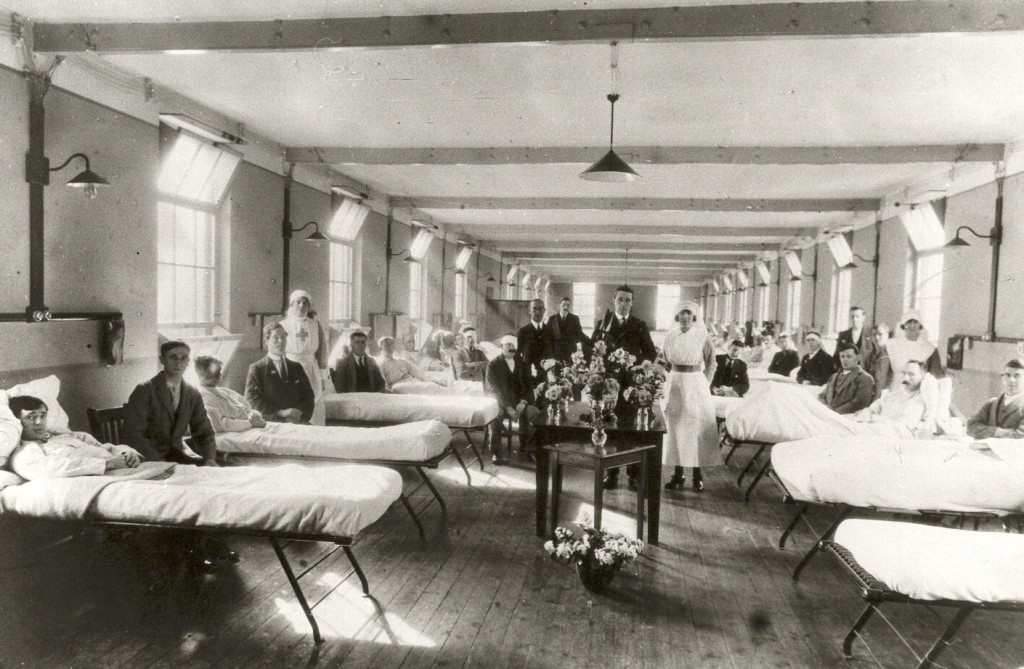
Whilst the University’s students and staff volunteered or were conscripted for military medical and agricultural service, those that remained at the University made great contributions to the war effort through their expertise, knowledge and research.
During the war the Manchester Municipal School of Technology’s reputation for technological investigation was put to use by the armed forces and government ministries, though the demand was often too great. Electrical and mechanical engineers developed a deep-sea hydrophone to counter the submarine threat to shipping. A high frequency alternator to power aircraft radios was designed and manufactured, and the materials used to construct aircraft were routinely tested in the Textiles Department. A new type of gas furnace was designed for the heat treatment of tool steels, thereby increasing the rate at which shells could be machined. Metallurgists produced cast iron of high tensile strength, enabling the range of gas shells to be doubled. Instruments were developed to measure the permeability of airship fabrics and the envelopes of both the R33 and R34 airships were treated with ‘dope’ to strengthen the fabric. Research was also carried out to improve war materials and substitutes for materials in short supply, such as a derivative of rubber. The School also worked with government departments on how to stretch the nation’s bread supply by incorporating more brewers malt into wartime loaves.
The School of Technology provided part-time courses to servicemen and at the end of the War its important role was recognized in 1918 by it being renamed the Manchester Municipal College of Technology.
As the horrific extent of injuries sustained at the front became clear, the University’s Medical School played a key role in devising and refining methods of treatment. John Stopford, who went on to become the Vice Chancellor of the University and for whom the current Medical School building is named, made significant contributions to the treatment of injuries during the war. Stopford studied and treated gunshot wounds of peripheral nerves in the military orthopaedic centre of the 2nd Western General Hospital and, despite having recently been appointed Professor of Anatomy, also conducted a peripheral nerve injury follow-up clinic at the Grangethorpe Hospital for more than ten years. Another well-known Manchester anatomist, Grafton Elliott Smith, collaborated with W.H.R. Rivers and T. H. Pear (a young professor of psychology at the Victoria University) on the nature and effect of shell shock and worked together to provide the basis for understanding and treating the condition. In all, 26 members of the Medical School were directly involved in war work.
At the University, the Faculty of Science gained a considerable reputation for its war work and the Department of Public Health and Bacteriology was a major force in attempts to counter the diseases and infections that were associated with the war.
The wives of staff took active part in making and sending ‘comforts’ to soldiers abroad. The University also helped Belgian refugees through fund raising and a house on Lime Grove was especially fitted out to receive refugees.